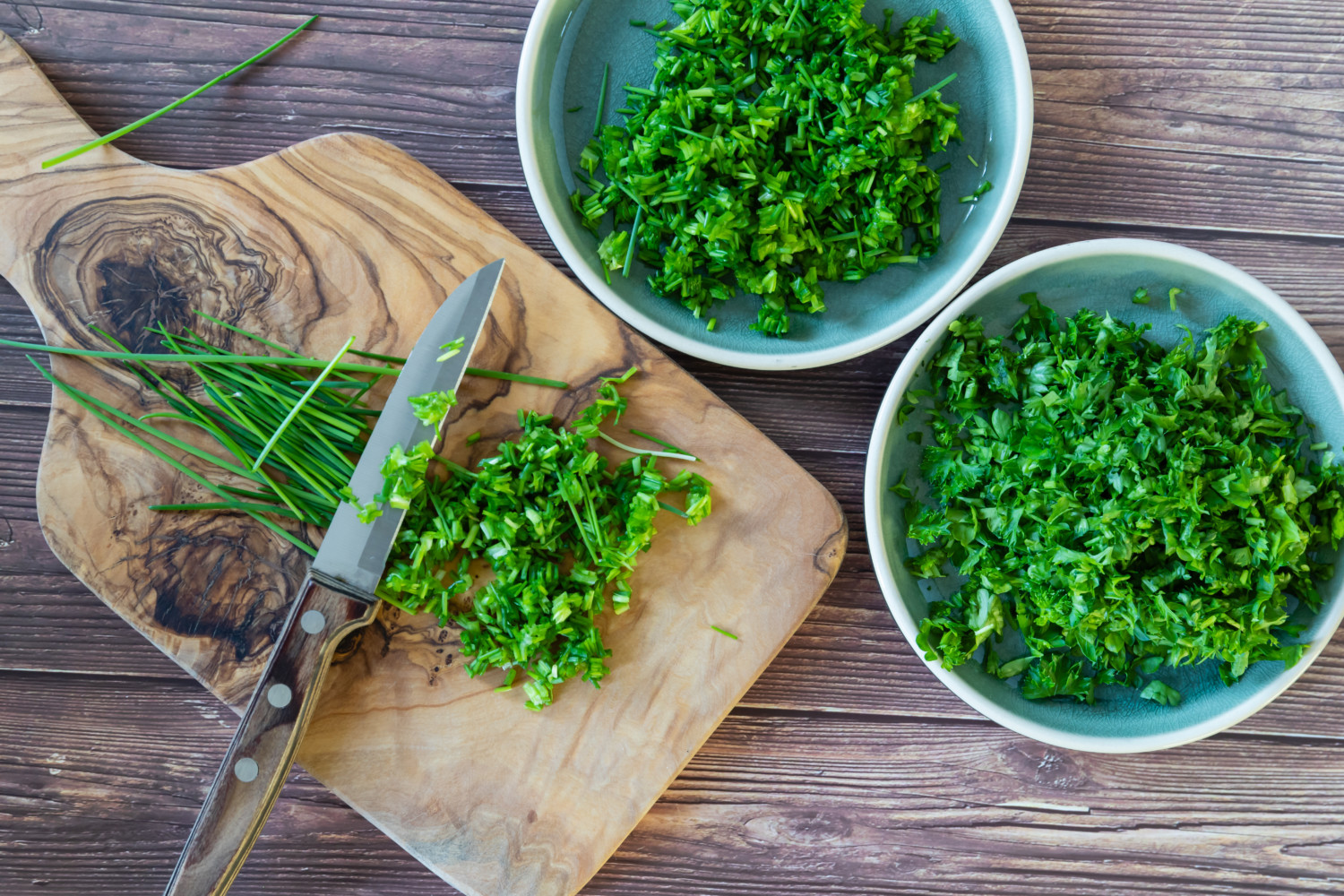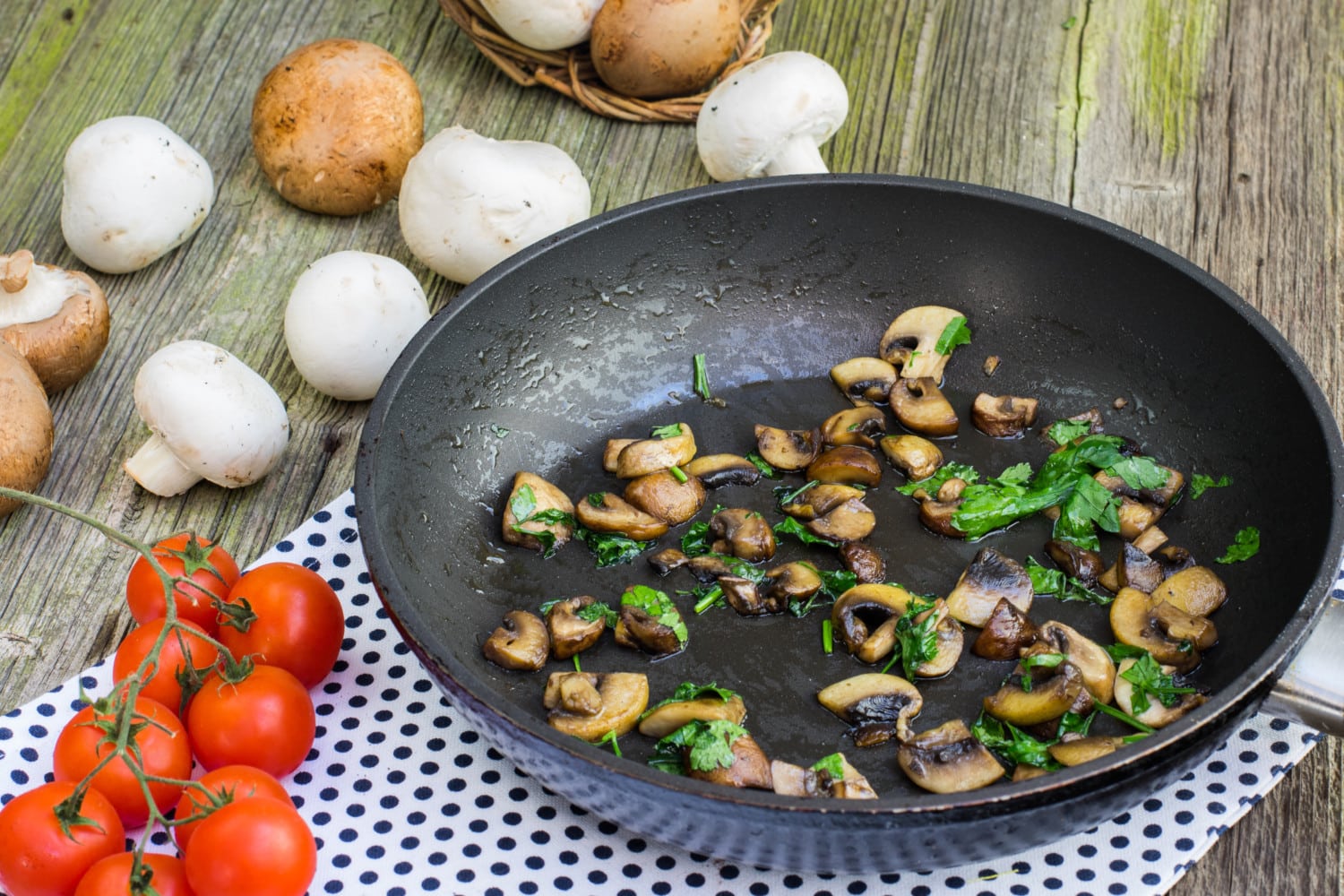While up until now you may have only used parsley as a colorful garnish, you may be surprised to hear it’s a frequent star ingredient in European and Middle Eastern cuisine. This native European flowering herb is known as French parsley (curly leaf) and Italian parsley (flat leaf) and both varieties are rich in nutrients and full of flavor. Regardless of whether you’re using this herb freshly snipped or dried and ground, we’ll show you several ways it’s good for your health — and why you may want to incorporate it into your daily diet.

Health Benefits Of Parsley
Parsley packs a major punch when it comes to nutritional benefits. It’s high in vitamins, minerals and antioxidants, and is especially high in vitamin K. In fact, you can get more than 70% of the daily recommended intake of vitamin K in just one tablespoon of chopped parsley. Vitamin K not only helps in blood clotting, but it also contributes to bone health. This leafy green is high in vitamin C, which is great for the body’s immune system. It’s a good source of folate, potassium and magnesium. Parsley is also a good source of calcium, just one cup contains 83 mg of calcium.
Parsley is also high in the antioxidant luteolin, which has been shown to boost mental health and diminish brain fog. It reduces inflammation and may help fight against cognitive decline. The folate found in parsley has also been shown to improve brain health.

Parsley helps with the body’s detoxification process, as it supports the functioning of the bladder, kidney and liver, which are the body’s natural filters. Research also shows us that parsley may be useful in preventing painful kidney stones, as it’s a natural diuretic.
This herb is also good for your waistline. One tablespoon averages just one calorie, which means it can be sprinkled generously on salads, soups and entrees for a boost of flavor. However, it’s recommended that pregnant women avoid large amounts of parsley, as it may negatively affect their pregnancy.
Another powerful parsley benefit: it’s been tied to decreased cancer cell activity. “While it adds flavor to our green juices, Italian sauces, and Mediterranean salads, the flavone apigenin that’s abundant in parsley inhibits cancer cell migration and invasion and stimulates a protective immune response,” registered dietitian Laura Cipullo told Real Simple.
Additional anticancer effects are due to its antioxidants in the form of flavonoids and vitamin C that combat oxidative stress, which is associated with chronic disease and cancer. High flavonoids have specifically been linked to reduced colon cancer risk.

How to Use Parsley
You can buy fresh herbs at the store (and store them properly so they last longer), of course. Or, for easy access, consider growing a parsley plant on your kitchen counter so you can conveniently snip a handful for dishes. For best results, place the plant near a sunny windowsill and keep the soil moist.
We hope this information inspires you to add parsley to your next batch of homemade vinaigrette or to create zucchini noodles with parsley-pistachio pesto.
Parlsey’s benefits run far and wide, so whether you’re whipping up a Middle Eastern tabbouleh salad or an Italian salsa verde, you’re bound to be getting an extra kick of nutrition and flavor. If you need to brighten a salad, try adding a handful of freshly chopped parsley or mix it into your green smoothie to up your nutrient take. Bon appetite!
This story originally appeared on Simplemost. Check out Simplemost for additional stories.


